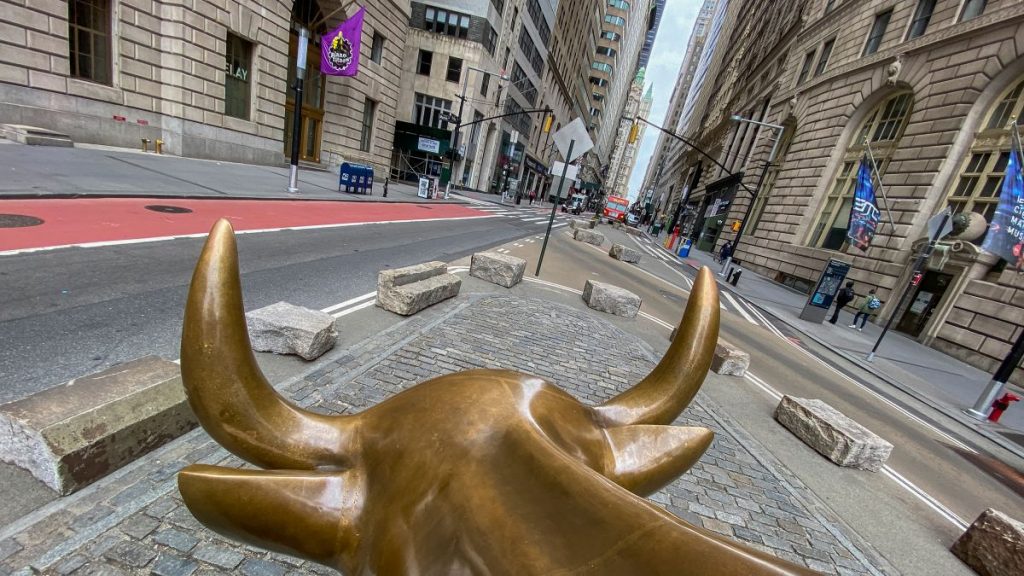Since inequalities of privilege are greater than could possibly be defended rationally, the intelligence of privileged groups is usually applied to the task of inventing specious proofs for the theory that universal values spring from, and that general interests are served by, the special privileges which they hold.
Reinhold Niebuhr, Moral Man and Immoral Society
A year on from its brush with Armageddon, the financial services industry has resumed its reckless, self-serving ways It isn’t hard to see why this has aroused simmering rage in normally complacent, pro-capitalist Main Street America. The budget commitments to salvaging the financial sector come to nearly $3 trillion, equivalent to more than $20,000 per federal income tax payer. To add insult to injury, the miscreants have also availed themselves of more welfare programs in the form of lending facilities and guarantees, totaling nearly $12 trillion, not all of which will prove to be money well spent.
Wall Street just looted the public on a massive scale. Having found this to be a wondrously lucrative exercise, it looks set to do it all over again.
These people above all were supposed to understand money, the value of it, the risks attendant with it. The industry broadly defined, even including once lowly commercial bank employees, profited handsomely as the debt bubble grew. Compensation per worker in the early 1980s was similar to that of all non-government employees. It started accelerating in 1983, and hit 181 percent of the level of private sector pay by 2007. The rewards at the top were rich indeed. The average employee at Goldman Sachs made $630,000 in 2007. That includes everyone, the receptionists, the guys in the mail room, the back office staff. Eight-figure bonuses for big producers became standard in the last cycle. And if the fourth quarter of 2009 proves as lucrative as the first three, Goldman’s bonuses for the year will exceed bubble-peak levels.
The rationale for the eye-popping rewards was simple. We lived in a Brave New World of finance, where the ability to slice, dice, repackage and sell risk led to better outcomes for all, via cheaper credit and better diversification. We have since learned that this flattering picture was a convenient cover for massive risk-taking and fraud. The industry regularly bundled complicated exposures into products and dumped them onto investors who didn’t understand them. Indeed, it has since become evident that the industry itself didn’t understand them. The supposedly sophisticated risk management techniques didn’t work so well for even the advanced practitioners, as both top investment banks and quant hedge funds hemorrhaged losses. And outside the finance arena, the wreckage is obvious: housing market plunges in the U.S., UK, Ireland, Spain, the Baltics and Australia; a steep decline in trade; a global recession with unemployment in the U.S. and elsewhere hitting highs not seen in more than 25 years, with the most accurate forecasters of the calamity intoning that the downturn will be protracted and the recovery anemic.
With economic casualties all about, thanks to baleful financial “innovations” and reckless trading bets, the tone-deafness of the former Masters of the Universe is striking. Their firms would have been reduced to sheer rubble were it not for the munificence of the taxpayer—or perhaps, more accurately, the haplessness of the official rescuers, who threw money at these players directly and indirectly, through a myriad a programs plus the brute force measure of super low interest rates, with perilous few strings attached.
Yet what is remarkable is that the widespread denunciations of excessive banking industry pay are met with incredulity and outright hostility. It’s one thing to be angry over a reversal in fortune; it’s one of the five stages of grief. But the petulance, the narcissism, the lack of any sense of proportion reveals a deep-seated pathology at work.
Exhibit A is the resignation letter of one Jake DeSantis, an executive vice president in AIG’s Financial Products unit, tendered in March 2009 as outcry over bonuses paid to executives of his firm reached a fever pitch. The New York Times ran it as an op-ed. “I am proud of everything I have done,” DeSantis wrote.
I was in no way involved in—or responsible for—the credit default swap transactions that have hamstrung A.I.G. Nor were more than a handful of the 400 current employees of A.I.G.-F.P. Most of those responsible have left the company and have conspicuously escaped the public outrage….
[W]e in the financial products unit have been betrayed by A.I.G. and are being unfairly persecuted by elected officials.…
I take this action after 11 years of dedicated, honorable service to A.I.G. … The profitability of the businesses with which I was associated clearly supported my compensation. I never received any pay resulting from the credit default swaps that are now losing so much money. I did, however, like many others here, lose a significant portion of my life savings in the form of deferred compensation invested in the capital of A.I.G.-F.P. because of those losses.
Anyone with an operating brain cell could shred the logic on display here. AIG had imploded, but unlike a normal failed business, it left a Chernobyl-scale steaming hulk that needed to be hermetically sealed at considerable cost to taxpayers. Employees of bankrupt enterprises seldom go about chest-beating that they did a good job, it was the guys down the hall who screwed up, so they therefore still deserve a fat bonus check. That line of reasoning is delusional, yet DeSantis had no perspective on it. And there is the self-righteous “honorable service,” which casts a well-paid job in the same terms as doing a tour of duty in the armed forces, and the hyperventilating: “proud,” “betrayed,” “unfairly persecuted,” “clearly supported.”
And to confirm the yawning perception gap, the letter was uniformly vilified in the Times’ comment section, but DeSantis’s colleagues gave him a standing ovation when he came to the office.
The New York press has served as an occasional outlet for this type of self-righteous venting. Some sightings from New York Magazine:
[I]f someone went to Columbia or Wharton, [even if] their company is a fumbling, mismanaged bank, why should they all of a sudden be paid the same as the guy down the block who delivers restaurant supplies for Sysco…?
I’m attached to my BlackBerry. … I get calls at two in the morning. … That costs money. If they keep compensation capped, I don’t know how the deals get done.
It never seems to occur to them, as Clemenceau once said, that the graveyards are full of indispensable men. So if the cohort with glittering resumes no longer deems the pay on offer sufficiently motivating for them to get out of bed, guess what? People with less illustrious pedigrees will gladly take their places.
And the New York Times has itemized how the math of a successful banker lifestyle (kids in private school, Upper East Side co-op, summer house in Hamptons) simply doesn’t work on $500,000 a year. Of course, it omitted to point out that outsized securities industry pay was precisely what escalated the costs of what was once a mere upper-middle-class New York City lifestyle to a level most people would deem stratospheric.
Although the word “entitlement” fits, it’s been used so frequently as to have become inadequate to capture the preening self-regard, the obliviousness to the damage that high-flying finance has inflicted on the real economy, the learned blindness to vital considerations in the pay equation. Getting an education, or even hard work, does not guarantee outcomes. One of the basic precepts of finance is that of a risk-return tradeoff: high potential payoff investments come with greater downside.
But how did that evolve into the current belief system among the incumbents, that Wall Street was a sure ride, a guaranteed “heads I win, tails you lose” bet? The industry has seen substantial setbacks—the end of fixed commissions in 1975, which led to business failures and industry consolidation, followed by years of stagflation, punitive to financial assets and securities industry earnings; the aftermath of savings and loan crisis, which saw employment in mergers and acquisitions contract by 75 percent; the dot-com bust, which saw headhunters inundated with resumes of former high fliers. Those who still had jobs were grateful be employed, even if simultaneously unhappy find themselves diligently tilling soil in a drought year, certain to reap a meager harvest.
But you never heard any caviling about how awful it was to have gone, say, from making $2 or $3 million to a mere $400,000 (notice how much lower the prevailing peak numbers were in recent cycles). And if you were having trouble paying your expenses, that was clearly bad planning. Everyone knew the business was volatile. Indeed, the skimpy salaries once served as a reminder that nothing was guaranteed.



